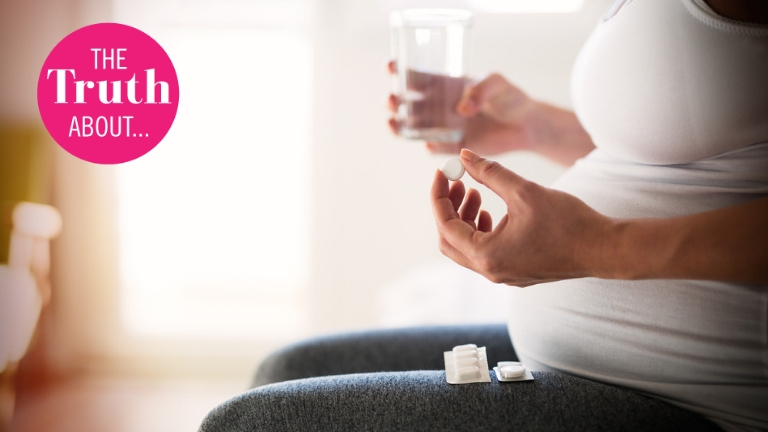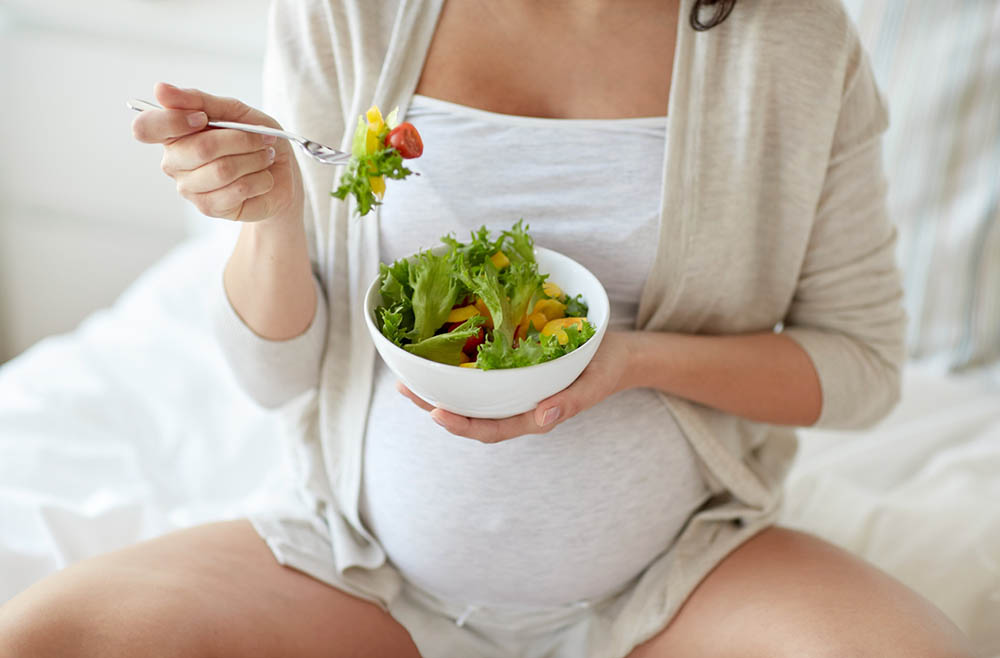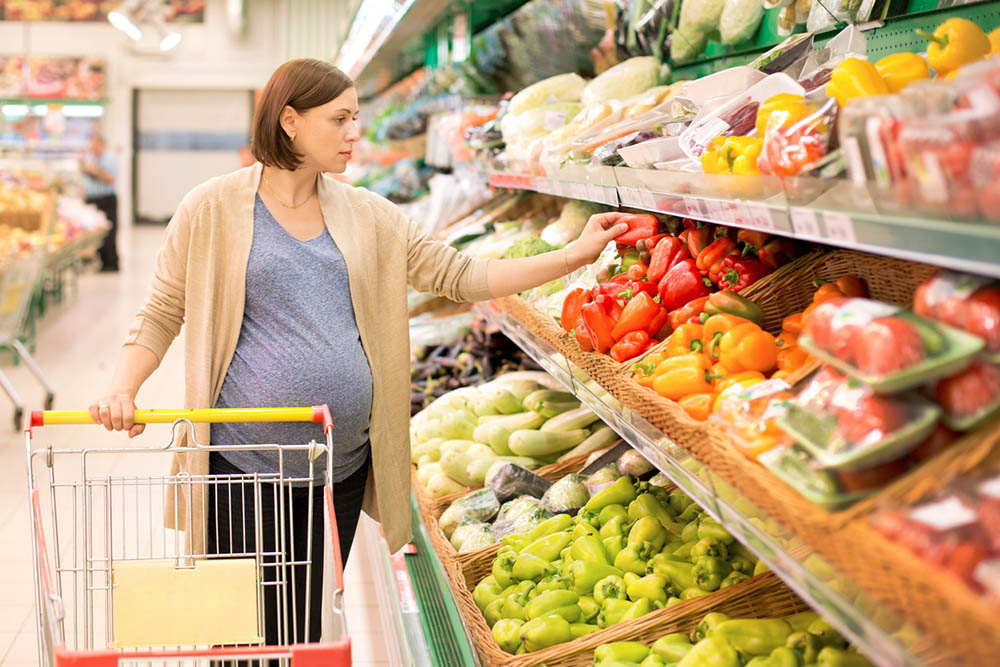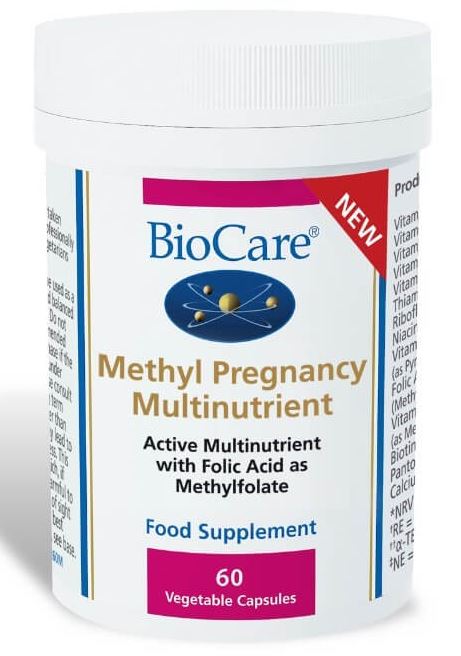When you’re pregnant, it seems everyone has advice about what to eat, what to wear, which supplements to take. Leading nutritionist, Raihane Palagi has advice in the latest of our ‘Truth about…’ series
A new study has revealed that women who develop diabetes in pregnancy but are not diagnosed are far more likely to experience a stillbirth than women without the condition.
Research led by the University of Leeds and the University of Manchester, found that the risk of stillbirth was over four-times higher in women who developed signs of diabetes but were not diagnosed.
The study compared the symptoms and care of 291 women who experienced a stillbirth to 733 similar women who did not experience a stillbirth across 41 maternity units in England and found that all the women included in the study with high blood sugar, had twice the risk of stillbirth than women without the condition.
This increased risk was likely to be caused by a missed diagnoses and a lack of subsequent care experienced by many of the women. Results show an association only, and cannot provide certainty about cause and effect.
Women who develop diabetes in pregnancy but are not diagnosed are far more likely to experience a stillbirth.
Making sense from all the conflicting, if well-meaning advice for pregnant women can feel like yet another chore on the to-do list for your new pregnancy brain.
Just last week, research published in the Journal of Obesity suggested that if women resisted putting on weight in pregnancy – in other words, they resisted eating for two – they could potentially remain slim in middle age.
That may seem obvious, but when it comes to the more nuanced advice such as which vitamins and minerals you need, it’s hard to know who – or what – to believe.
Indeed, last October Gwyneth Paltrow’s lifestyle website Goop was reported to Trading Standards over allegations that it made misleading claims.
The NHS warns against taking any supplements containing vitamin A during pregnancy.
One of the complaints – issued by the The Good Thinking Society, a non-profit charity that campaigns against pseudoscience – pointed out that one of Goop’s products, a pregnancy vitamin called The Mother Load listed 110 per cent of the ‘daily value’ of vitamin A for adults and children aged four and above and 69 per cent of daily value for pregnant women.
However, the NHS warns against taking any supplements containing vitamin A during pregnancy. The incident has prompted us to cover the issue of taking vitamins in pregnancy in this month’s ‘Truth about…’ series.
We spoke to Raihane Palagi, a nutritional therapist and clinical nutrition advisor at respected supplement brand, BioCare, to look closer at the vitamins needed (or not) during pregnancy.
Vitamin A
The caution regarding vitamin A supplements in pregnancy emerged following a study published in the New England Journal of Medicine in 1995. It followed 22,748 women over three years, and showed that an intake exceeding 10 000 IU vitamin A significantly increased the risk of malformations in babies.
This is still the only study that has been conducted regarding the toxicity of supplementing with vitamin A during pregnancy. As a result, the World Health Organisation (WHO) recommends that a daily supplement during pregnancy should not exceed 10,000iu per tablet.
But the WHO also notes that vitamin A insufficiency is associated with night blindness and higher susceptibility to infection.
Indeed, as with any nutrient you can have too much but also too little and vitamin A deficiency is as detrimental as toxicity. In fact, this an essential nutrient involved in tissue growth, healthy eyes and skin development.
Because it supports cell growth, Vitamin A plays a key role in the formation and maintenance of the heart, lungs, kidneys, and other organs. It’s also important for the immune system, making it beneficial for both the mother and the baby throughout pregnancy.
It’s important to note that there are two main types of vitamin A. The first is preformed vitamin A, the most ‘active’ type, found in animal products such as meat, fish, eggs and dairy.
The second type is provitamin A, which comprises several types of molecules, such as beta-carotene, that can be converted to the active preformed vitamin A. Provitamin A carotenoids are natural compounds found in colourful fruits and vegetables such as carrots and sweet potatoes.
There is no risk in eating large amounts of carrots and other vegetables for pregnant women, as the provitamin A carotenoids are only converted to preformed vitamin A if and when the body needs it.
However, pregnant women should limit their consumption of foods that contain preformed vitamin A, especially liver, which should be consumed no more than once a week.
Multivitamins
According to the National Institute for Clinical Excellence (NICE) the only two vitamins pregnant women need to supplement with are vitamin D and folic acid.
But while yes, we should always aim to get our nutrients from a diverse and balanced diet, because of poor food choices, food processing methods and general lifestyle factors, such as stress and pollution, it is not always easy to meet all of our requirements from our diet alone.
If you’re taking a good quality multinutrient, ensure it contains good levels of vitamin B12, B6, folate, calcium, iron and zinc.
Taking a good multinutrient that is suitable for pregnancy is a convenient and safe way to meet our demands in vitamins and minerals, and ensure that both the mother and the baby can get the nutrients they need, without the risk of overdosing on one single nutrient
If you’re taking a good quality multinutrient, ensure it contains good levels of vitamin B12, B6, folate, calcium, iron and zinc. Deficiencies in these nutrients may lead to perinatal and postnatal depression.
Let’s look closer at these now.
Vitamin D
Pregnant women need to look after their vitamin D status, as deficiencies have been linked to poor immunity and allergies, low mood, fatigue, achy muscles and bone pain. Inadequate vitamin D levels in the mum can also lead to abnormal bone growth, fractures, or rickets in newborns.
In fact, a study last year found that vitamin D deficiency can increase the risk of miscarriage.
The research was published in the journal The Lancet Diabetes and Endocrinology analysed levels of vitamin D in the blood, before pregnancy and eight weeks after, of 1,200 women who had experienced a previous pregnancy loss and were hoping to conceive again.
Those whose vitamin D levels were in line with recommended levels prior to conception were 15 per cent more likely to have a live birth, and risk of miscarriage decreased as levels of the vitamin rose.#
One explanation of this could be because of the presence of vitamin D receptors in the trophoblasts, the specialised cells of the placenta that play an important role in the implantation of the embryo, which suggests an important role of vitamin D in the first trimester specifically.
Our lifestyle, diet and genetic individualities can all affect our vitamin D absorption, so it is useful to know our exact blood levels to then supplement accordingly.
A blood test is the best way to do that and you can get one from a reputable company such as BetterYou online (they also supply the NHS).
However, it is safe to supplement a small dose of vitamin D daily, such the dose found in a pregnancy multinutrient.
In 2016, the NHS updated their vitamin D guidelines and now recommend all adults and pregnant women to supplement with at least 10mcg (400 IU) of vitamin D daily, or more if you’re deficient.
Folic acid
We need good levels of the active forms of vitamin B12 and folic acid for a biochemical process called methylation that is crucial to DNA replication and foetal development.
Various enzymes are involved in this process, of which MTHFR (methyltetrahydrofolate reductase) is the most known and studied.
An underactive MTHFR enzyme has been linked to increased risk of pre-eclampsia, Intrauterine Growth Restriction (IUGR), and miscarriages.
The NHS recommends pregnant women supplement with 400mcg of folic acid daily. However, a 2015 study published in the Journal of Medical Science has found that supplementation of 800mcg of methylfolate can benefit women who have struggled to conceive or are at risk of miscarriages.
Other nutrients important in pregnancy
Pregnancy involves significant anatomical and physiological changes in order to nurture and accommodate the developing foetus. As a result, the body’s requirements for nutrients increases during this important phase of a woman’s life.
Iron
The requirement for iron is almost double during pregnancy and is needed for the development of the baby’s organs, so look out for amounts around 25mg in a multinutrient and up to 45mg, short-term, if a deficiency is diagnosed.
Iodine
The WHO recommends an increase in iodine intake in pregnancy from 100 to 150–220 mcg a day as it is a key nutrient for implantation and neurological development.
Protein
The demand for protein also increases to maintain maternal tissues and foetal growth so ensure you’re getting enough in your diet. The adult recommendation for protein intake is 0.75g of protein per kilogram (kg) of weight/day, and for pregnancy an additional 6g per day is recommended. A good way to achieve this is to make sure you have a palm-sized portion of protein with each meal and power up your smoothies, soups, porridge, and salads with nuts and seeds
Essential fatty acids
Making up about 20 per cent of our brain tissue, essential fatty acids (EFA) play a vital role in the baby’s development.
There are two types of EFAs: omegas 3 and 6, and they both need to be provided by the diet as the body cannot create them on its own.
While omega 6 is widespread in the western diet and found in vegetable oils and spreads as well as poultry, eggs, nuts and cereals to name a few, omega 3 are more difficult to get from the diet as they are only found in plant-based proteins like flaxseeds and walnuts (as ALA) and in oily fish like wild salmon, mackerel and sardines (in the form of DHA and EPA).
Pregnant women are recommended to limit their intake of oily fish to twice a week, due to their content in pollutants such as mercury, PCBs and dioxin.
DHA is a type of omega 3 fatty acid that is especially important, as it is needed for the growth and development of the baby’s brain and eyes. Meanwhile, both EPA and DHA can support the development of the baby’s heart.
Supplementing with pure fish oil is a good way to increase the intake of the omega 3 DHA and EPA, especially since pregnant women are recommended to limit their intake of oily fish to twice a week, due to their content in pollutants such as mercury, PCBs and dioxin.
The natural ratio of EPA and DHA is 1.5:1 respectively, so look for a balance such as this. Mega EPA from BioCare provides this ratio and is safe for use during pregnancy at the recommended daily dose.
Vegetarian and vegan mums-to-be
Vegetarian and vegan diets are more likely to be deficient in iron, zinc, calcium, vitamin B12, and omega-3. Protein requirements may also be more difficult to meet.
Pregnant women who eat limited amount or no animal products should try to increase their intake of pulses such as beans and lentils, by soaking them overnight before cooking to make sure they get an optimal intake of nutrients from food.
They can also snack on un-salted nuts and seeds, which are high in minerals like zinc and iron as well as protein and healthy fats.
Vegans should consider supplementing with an algae-based omega 3 oil such as Vegan Omega 3, and 25mg of iron per day or up to 45mg per day if they are deficient.
They should also supplement with vitamin B12 which can only be found in sufficient amounts and well-utilised form in animal products. A vegan multinutrient might be the easiest way to ensure good levels of these key nutrients. Biocare’s Methyl Pregnancy Multinutrient contains good levels of B12 and is vegan.
Different trimesters, different needs?
Generally speaking, the first trimester is the most vulnerable and critical period, where the need for nutrients such as folate and iron is higher for the healthy development of the embryo, including healthy gene expression and neurological development in the case of folate.
Taking a good multinutrient up until birth and even after is the best way to ensure good nutrient status and optimal health.
This is why pre-conception care through a good diet and supplementation is important to ensure good baseline levels of nutrients for both the mother and baby. The best way to do this is to start taking a pregnancy multinutrient while trying to conceive, so you can be sure that you are getting the right nutrients from the very first day.
In the third trimester, the foetal needs for calcium and vitamin D increase, when bone growth and ossification are most prominent.
Most nutrients are needed throughout pregnancy though, so taking a good multinutrient up until birth and even after is the best way to ensure good nutrient status and optimal health.
Eating for two? Just don’t.
Contrary to popular belief, pregnant women don’t need to ‘eat for two’. Energy requirements don’t change in the first six months of pregnancy, and the calorie requirements only increase by 200 calories a day in the last trimester, which is equivalent to about two apples.
Be aware that diets high in refined sugar and processed foods can lead to excess weight gain, which can increase the risk of developing gestational diabetes, hypertension, and can lead to complications during labour and delivery.
However, pregnant women do need to provide nutrients for two, so while they don’t really need to increase the quantity of food they eat, they may need to improve the quality.
They should aim at eating a diet that’s rich in fresh vegetables and fruits, complex carbohydrates, nuts and seeds, and good proteins like eggs, lean meat and limited amounts of oily fish.
If there is one time where eating organic is of importance, it is during pregnancy. Eating organic foods helps to reduce the foetus’ exposure to harmful pesticides and other solvents.
Avoiding extreme diets
As a general rule, pregnant women should avoid any extreme diets, such as those that are very high or very low in a single macronutrient such as protein, fats or carbohydrates) are not recommended during pregnancy.
As pregnancy is such a vulnerable period, pregnant women should avoid drastic changes in their diet such as going from a high-carb diet to a paleo diet overnight, and rather aim at increasing the variety of foods they eat, avoiding processed foods, reducing refined sugar and getting several servings of vegetables daily.
Try BioCare Methyl Pregnancy Multinutrient which has been formulated specifically for pregnancy using the best absorbable forms of nutrients, for support in pre-conception, pregnancy and during breastfeeding.
Can you overdose on any other vitamins in pregnancy? Or just A?
All vitamins and minerals in large doses can potentially be detrimental for both the mother and baby. That is why supplementing with a carefully formulated pregnancy multinutrient is the best way to avoid this and get safe, therapeutic levels of all the nutrients.
More specifically, antioxidants such as vitamin C and E, as well as fish oil, can have blood-thinning properties which might endanger the foetus if taken in large amounts and promote excessive bleeding during labour.
And if you’ve had problems with conceiving or miscarriage in the past is a more tailormade programme of supplementation advisable? How should you go about doing this?
Miscarriages and infertility can be caused by various deficiencies and imbalances. As a standard and safe supplement programme, I would recommend to take 400mcg of methylfolate (the active form of folic acid), or 800mcg as used in the 2015 study mentioned earlier, but only under professional guidance. Alongside this, a good pregnancy multinutrient and a pure fish oil providing safe levels of EPA and DHA can support a healthy pregnancy.
Whether you are pregnant or planning to be, working with a Registered Nutritional Therapist can help investigate hormonal imbalances and nutritional deficiencies to get a more detailed picture of your nutritional requirements and create a personalised programme, suitable to your needs.
More Healthista Content:
Should you try a low calorie diet?
Sanctuary secrets – 7 steps to make your home a feel good space2019/
How to lose body fat – the 9-step nutritionist’s guide
Stressed? Anxious? This new probiotic for the mind can help
Like this article? Sign up to our newsletter to get more articles like this delivered straight to your inbox.



























































